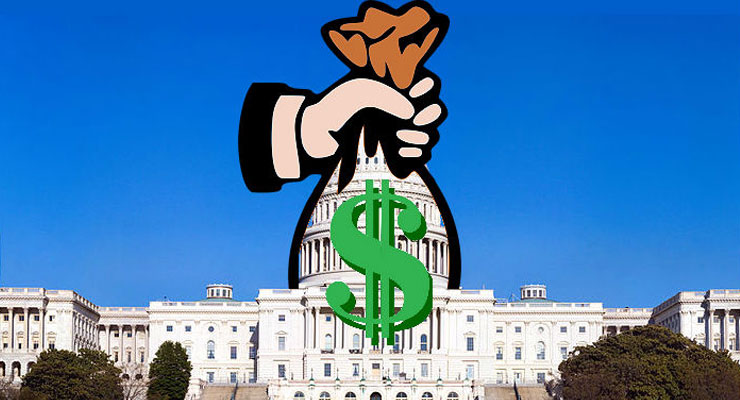 Money politics has long dominated American politics, but the scale of the problem has gotten much worse since the Supreme Court made its infamous 2010 ruling known as Citizens United. This is despite the fact that evidence is growing that small donors can fund political campaigns if they get some support such as through a voluntary public matching funds program. In addition, following the 6 January insurrection, a new article in TPM is by Ciara Torres-Spelliscy, highlights that shareholders may be unaware of which businesses endorse which politician although money to the sedition caucus may be bad for corporate donors. Here is an excerpt:
Money politics has long dominated American politics, but the scale of the problem has gotten much worse since the Supreme Court made its infamous 2010 ruling known as Citizens United. This is despite the fact that evidence is growing that small donors can fund political campaigns if they get some support such as through a voluntary public matching funds program. In addition, following the 6 January insurrection, a new article in TPM is by Ciara Torres-Spelliscy, highlights that shareholders may be unaware of which businesses endorse which politician although money to the sedition caucus may be bad for corporate donors. Here is an excerpt:
Even a small donation to the sedition caucus can cause blowback for corporate donors. But shareholders may not know which companies are supporters of which politician since there are so many ways for corporations to spend their money in secret through dark money.
While corporate political spending can be small relative to other expenditures made by a multinational publicly traded corporation, this is not the same as saying that the money that goes into politics is not material to investors. Materiality is about more than size. Materiality goes to the significance of corporate behavior to investors.
Corporate political spending is material to current and future investors in part because it carries inherent reputational risk. Supporting the wrong politician with corporate dollars can boomerang on the corporation in dramatic fashion. Target still gets grief for political contributions it made a decade ago. And in the boycott-happy culture of social media, corporations are often facing boycotts and other shunning for their actions.
Read the full story here. Also, visit the main Democracy Chronicles section on American Democracy or our articles on Money Politics and Worldwide Corruption.
Leave a Reply